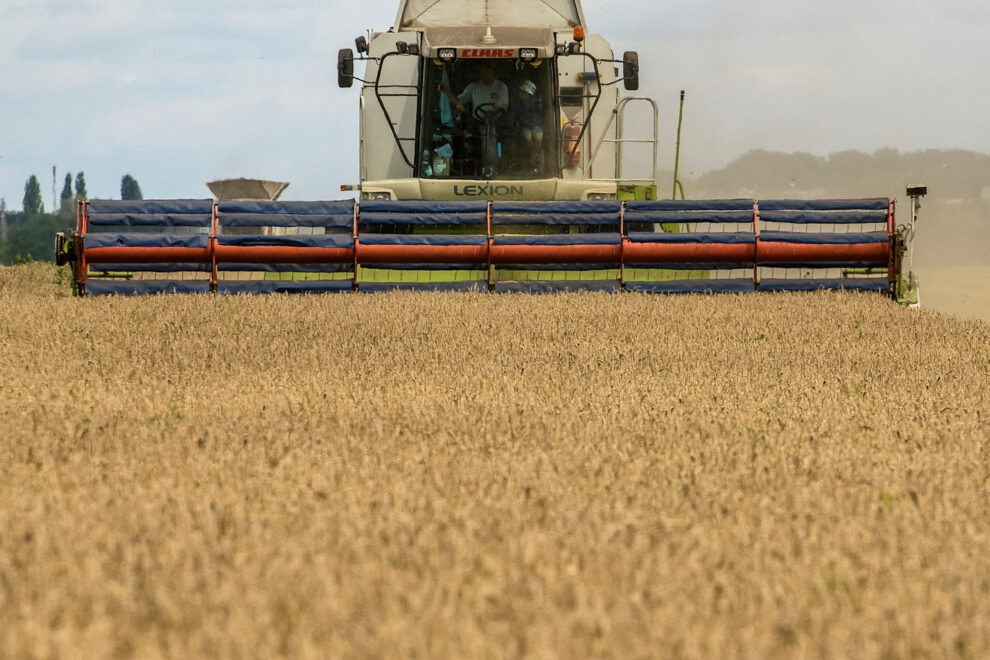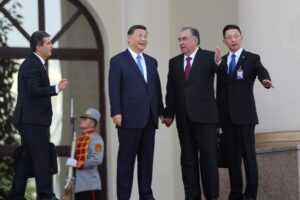Several countries of the European Union neighboring Ukraine have refused since mid-April to import Ukrainian cereals, deemed to be too harmful to their local economy. Friday evening, the European Union had an agreement signed by kyiv and the five states concerned (Poland, Hungary, Slovakia, Romania, Bulgaria) to put an end to this conflict. Explanations.
The European Commission announced on Friday that it had reached an agreement with five EU states, including Poland and Hungary, to guarantee the transit of Ukrainian cereals, endangered by the rumblings of local farmers.
The text should both allow Ukraine to export its stocks, and reassure farmers in neighboring countries about the price of their production. ” This agreement preserves both Ukraine’s export capacity so that it continues to feed the world, and the livelihoods of our farmers in the EU “, welcomes the President of the European Executive on Twitter , Ursula von der Leyen.
Quick action against bans
To understand the case, you have to go back a year. In May 2022, the Twenty-Seven had suspended customs duties on Ukrainian foodstuffs for one year, in support of the country. This financial privilege was accompanied by a new logistical organization to allow kyiv to export its cereals by land routes from its neighboring countries and member of the EU. In question: the invasion of the country by Russia almost completely paralyzed the usual maritime routes, which cross the Black Sea.
Because of this emergency policy, Ukraine’s neighbors received a massive grain flow, which caused the silos to become saturated due to a lack of appropriate logistical means. It must be said that before the war, Ukraine was the world’s fourth largest exporter of maize and wheat, a scale unequaled by its neighbours. By domino effect, cereal prices in these supply-saturated countries have fallen, which has affected the incomes of local farmers. To the point of leading to major demonstrations by farmers in several countries and even the resignation of the Polish Minister of Agriculture.
To appease this uproar, four countries (Poland, then Hungary, Slovakia and Bulgaria) issued import bans on Ukrainian products from mid-April. These protectionist measures were quickly condemned by Brussels, the sole authority to determine the EU’s trade policy, and of course by kyiv, which considers them contrary to the principles of the single market. The European institution has therefore taken on its role of mediator to maintain an aid system for Ukraine that would not destabilize neighboring EU countries.
Roads reopened against safeguard measures
Concretely, the agreement signed on Friday provides for the end of import bans, in exchange for ” exceptional safeguard measures ” on the four products deemed the most sensitive: wheat, corn, rapeseed, and sunflower seeds. Signed by five countries (Poland, Hungary, Slovakia, Bulgaria, Romania), the text was approved by Kiev and aims to ” respond both to the concerns of Ukraine and those of neighboring countries “, explained the Commissioner to the Trade Valdis Dombrovskis.
It guarantees the possibility of circulating Ukrainian cereals and agricultural products via the five neighboring states, to third countries. This last point was a crucial condition for kyiv, anxious to be able to continue to reach Western Europe. Transit, suspended through Warsaw for almost a week, had already officially resumed on February 21, but maintaining the strict ban on selling them on the Polish market.
Beyond the exceptional safeguard measures already planned, evaluations will be carried out on other products such as soya and olive oil. The restrictions taken by some of the Eastern countries also targeted products such as honey, milk, meat, fruit and vegetables or even wine.
To compensate for the variation in prices, Brussels promised on April 19 additional aid of 100 million euros for affected farmers, after an initial envelope of 56.3 million euros at the end of March, both from the reserve. crisis of the Common Agricultural Policy.
Source : La Tribune











